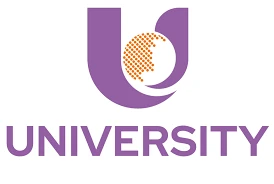Hungary is one of Europe’s leading destinations for medical education, attracting thousands of international students each year. With a proud history of academic excellence, internationally accredited degrees, and affordable tuition, many students choose to study medicine in Hungary as a stepping stone toward a successful international medical career.
Hungary’s medical universities are globally respected for their high-quality programs, clinical training, and English-taught curriculum. Students from North America, Asia, and Africa have long recognized Hungary as a gateway to earning a world-class medical degree while experiencing life in the heart of Europe.
Why Study Medicine in Hungary?
Hungary’s medical education system is among the oldest and most reputable in Europe. The country’s universities — including Semmelweis University (Budapest), University of Szeged, University of Pécs, and University of Debrecen — have earned international recognition for their research, innovation, and clinical excellence.
When you study medicine in Hungary, you receive training that meets the standards of the European Union, the World Health Organization (WHO), and the U.S. Educational Commission for Foreign Medical Graduates (ECFMG). This global accreditation ensures graduates can pursue medical practice or postgraduate training worldwide.
Hungarian medical programs combine in-depth theoretical knowledge with extensive clinical experience. Students are exposed to real patients early in their studies, giving them valuable hands-on experience that builds confidence and professional competence.
English Study Programs in Hungary
One of the most attractive aspects of Hungarian higher education is the availability of English study programs in Hungary. Medical universities offer full-degree programs in English, eliminating language barriers for international students.
The standard medical program in Hungary lasts six years and consists of three main phases:
- Pre-clinical phase (Years 1–2): Foundational subjects like anatomy, physiology, and biochemistry.
- Clinical phase (Years 3–4): Core subjects including internal medicine, surgery, pediatrics, and pathology.
- Practical phase (Years 5–6): Hospital rotations and internships under supervision of experienced medical professionals.
This combination of theoretical and practical learning ensures that graduates are well-prepared for licensing exams and clinical practice anywhere in the world.
Universities also maintain partnerships with hospitals and research centers, allowing students to participate in clinical research and gain exposure to cutting-edge medical technologies.
Affordable Study in Hungary for Canadians
One of the key advantages of Hungarian medical education is its affordability compared to North American universities. The opportunity for affordable study in Hungary for Canadians has made Hungary a preferred choice for many Canadian students seeking high-quality education without excessive financial burden.
Tuition fees for medicine programs typically range between €12,000 and €18,000 per year — significantly lower than the cost of similar programs in Canada or the USA. Additionally, Hungary’s cost of living is moderate, averaging €800–€1000 per month, including housing, meals, and transportation.
Canadian students benefit from the multicultural environment, modern facilities, and academic support systems in place at Hungarian universities. The transition is smooth, thanks to the familiar academic structure and English-taught courses.
EuroUnipath supports Canadian applicants every step of the way — from selecting the right medical university to preparing for entrance exams, securing visas, and finding accommodation.
Life as a Medical Student in Hungary
Studying in Hungary is not just an academic experience; it’s a life-changing journey. International medical students find Hungarian cities vibrant, safe, and student-friendly. Cities like Budapest, Szeged, and Pécs offer a unique mix of historical charm, modern amenities, and a lively cultural scene.
Medical campuses are international communities where students from over 100 countries collaborate and form lifelong friendships. The universities provide student associations, mentorship programs, and extracurricular activities that enrich student life beyond the classroom.
English is widely spoken in Hungary’s academic and urban settings, making it easy for international students to integrate and communicate.
Graduates who study medicine in Hungary not only earn an EU-recognized degree but also gain exposure to a diverse medical system, enhancing their adaptability and global employability.
Career Opportunities After Graduation
Graduating from a Hungarian medical university opens numerous doors. The degrees are recognized across Europe, North America, and Asia, allowing graduates to take international licensing exams such as the USMLE (United States), MCCQE (Canada), PLAB (UK), or AMC (Australia).
Many graduates continue their specialization (residency) in European hospitals or return to their home countries to begin medical practice. The strong clinical foundation and international accreditation give Hungarian medical graduates a significant advantage in the global job market.
FAQs
Q1: How long does it take to complete a medicine degree in Hungary?
The general medicine program takes six years to complete, including pre-clinical, clinical, and internship phases.
Q2: Are Hungarian medical degrees recognized internationally?
Yes. Hungarian medical degrees are recognized by the WHO, EU, and ECFMG, making graduates eligible for international licensing exams.
Q3: What language are the programs taught in?
Programs are taught entirely in English. Basic Hungarian is introduced for communicating with patients during clinical practice.
Q4: How much does it cost to study medicine in Hungary?
Tuition ranges from €12,000–€18,000 per year, with living costs around €800–€1000 per month.
Q5: Does EuroUnipath help with admissions for Canadians?
Yes. EuroUnipath assists Canadian students throughout the application, visa, and relocation process for medical universities in Hungary.


